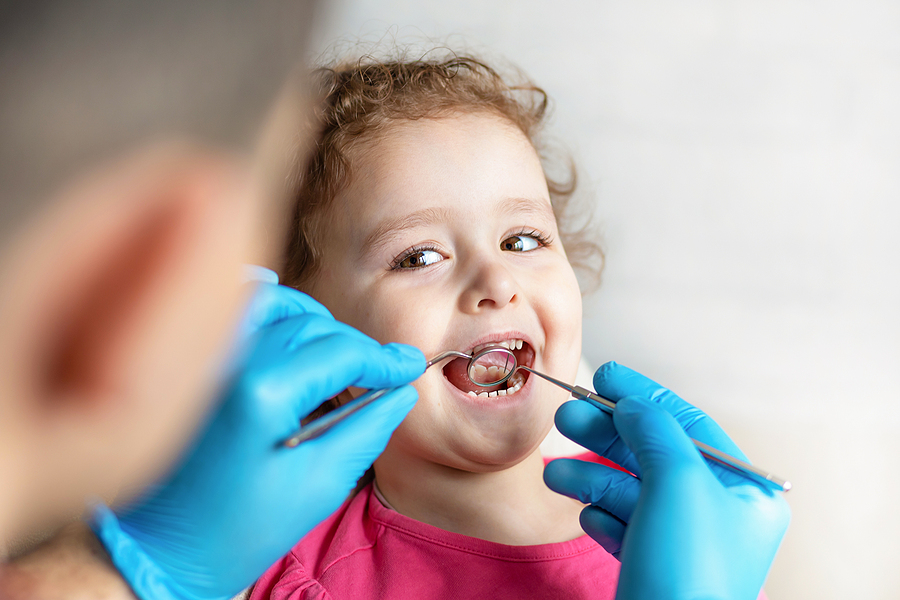Your child’s firsts…first steps, first words, and their first teeth are all important milestones!
Every child reaches developmental milestones at different ages.
Dental developmental milestones come about at their own unique pace. It is very important to track these events to understand how your child is growing.
Studies from the Centers for Disease Control and Prevention (CDC) show that tracking your child\’s milestones helps you to determine their ability to speak, learn, and behave.
This week, we take a look at some of the most important dental developmental milestones for your children.
If you or your child is experiencing any concerning oral pain, call our emergency dentist in Armadale now for immediate advice and support.

Why is it important to understand development milestones in children?
A parent\’s understanding of their child\’s dental milestones is essential to keep their teeth and gums healthy and protected against infections, cavities, and pain. This is why it is best to start introducing cleaning techniques and implementing good oral health care habits when they first start to grow baby teeth. The overall condition of your child\’s oral health affects their emotional, mental, and physical well-being. You may not realise its effects as early as today, but oral health can bring about other issues throughout the entire body. This is called the mouth-body connection. A lot of research has gone into linking gum and teeth issues with whole-of-body illnesses and conditions, such as heart disease, obesity, and some respiratory conditions. Here are some more reasons why you should track developmental milestones in your children and have a dentist provide them various dental treatments throughout these stages.1. Protects your child from oral health complications in the future
Poor dental care habits can have long-term and damaging effects on your child\’s health. Early habits include brushing, flossing, and regular dental checkups; help instill these habits early on to protect teeth from gum disease, pain, and tooth decay.At what age should I take my child to the dentist?
The rule of thumb is that once your child\’s first tooth erupts, you should schedule their first trip to the dentist (and no later than their first birthday). Introducing them to a dentist early on can also help reduce the chances that your child will develop a fear of the dentist. From their very first appointment, your child has an idea of what to expect at each dentist visit. Monitoring your child\’s oral milestones is essential in maintaining their healthy teeth and gums which can protect them from oral health complications in the future.2. Teaches them good habits
Teaching your child to practice good oral hygiene promotes lifelong oral health standards. Practising basic yet important oral health habits will help them carry these habits through to adulthood. From the moment you slowly start introducing brushing using a soft, child-friendly toothbrush, you’re instilling good habits. Slowly but surely, you can introduce independent care, so they can learn to take ownership of brushing and flossing as they grow older.3. Prepares them for permanent tooth growth
At Dental Care Group, we like to think of baby teeth as a set of ‘living’ braces, making room for permanent teeth. As such, they are still important in a child’s overall health and oral development, despite the fact they will all fall out!
What are the key dental milestones in child development?
Most parents no doubt remember the moment they first saw their precious baby’s first tooth emerge! It’s one exciting milestone that comes with parenthood. Additionally, it\’s the first of a few key dental milestones that your local dentist will want to know about, too.Stage 1: Teething
The first tooth (and subsequent teething) usually starts when baby is around 4-7 months. Their bottom front teeth usually come out first, followed by their top front teeth. Teething isn\’t a comfortable experience for kids as they may feel pain, irritability, and itching in the process. Most of the time, children who experience teething will have a hard time eating and sleeping because of this unprecedented discomfort. Signs your baby is teething include:- Disrupted sleep
- Swelling or inflammation of the gums
- Loss of appetite
- Fever
- Diarrhea
- Increase in biting and rubbing of gums

